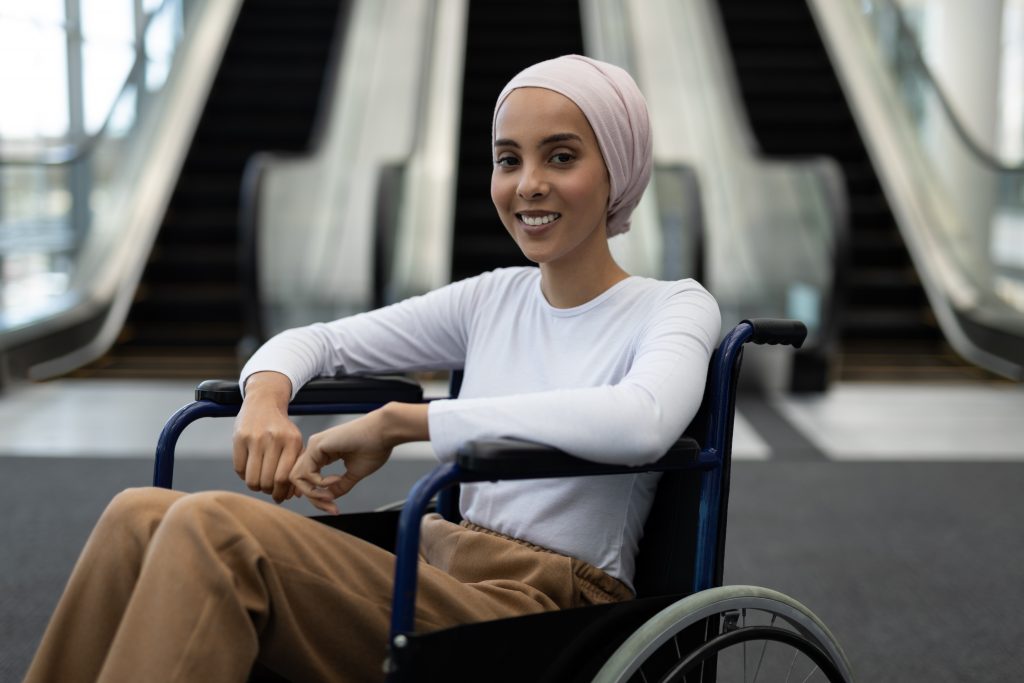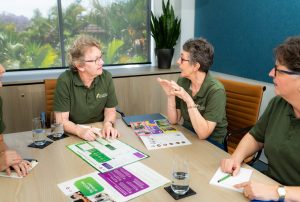When a young person turns 18, it is often a time of excitement and celebration. It can also be an emotional turning point for some. For NDIS participants, it may not come with the same levels of independence or decision making as their peers. So, what happens when a young person on the NDIS turns 18 and what happens to their supports?
The NDIS encourages adults to be involved in making their own decisions. If your child has an NDIS plan, they’ll be encouraged to become responsible for managing their plan when they turn 18 if they can. In this article, we discuss what happens when your child turns 18 and how to ensure you maintain the same or similar level of required support for your situation.
Preparing children to manage their own NDIS plans
Many youths living with a disability have similar hopes to their peers without disability – they’re seeking freedom, independence and the ability to make their own decisions. A lack of independence can be frustrating for teenagers with disability, especially for people who require assistance with everyday tasks, self-care or transport.
Early preparation and transition planning give your child the opportunities to learn and practise skills for managing their own NDIS plan and become more responsible and independent.
This includes skills for:
- setting goals and identifying supports for their plan
- choosing NDIS providers
- communicating with the National Disability Insurance Agency (NDIA) and health professionals
- advocating for themselves and making informed decisions
- using NDIS support budgets as well as general budgeting
- organising information about their plan – for example, keeping invoices and reports.
Building specific skills for managing NDIS plans
As your child gets older, you can help them develop specific skills for managing their NDIS plan. These might include skills for setting goals, choosing services and working with the NDIS.
Setting goals
Encourage your child to think about their:
- short-term goals, like taking part in a local sporting team
- long-term goals, like doing further study or work after they finish school.
Then ask your child about what could help them work towards their goals. For example, if your child’s goal is to increase their independence in the community, they might get a support worker to help them take part in group activities.
Choosing services
- Ask for your child’s opinion on things like spending their NDIS funds and choosing NDIS providers.
- Encourage and prepare your child to talk to NDIS providers about their services.
Working with the NDIS
- Involve your child in their plan reassessments. For example, your child could prepare by thinking about how their supports have helped them work towards their goals and whether they want any new goals for their next plan. Let your child take the lead during the review.
- Explain the different options for managing NDIS funds and talk with your child about which might work best for them. For example, your child might want to use a plan manager so they can have administrative support plus the flexibility to use a range of services.
- Help your child learn how to do the administration involved in their plan. For example, show your child how to lodge claims and then get your child to do it while you supervise.
Independent decision making
When a person turns 18, a person’s legal rights change as they become an adult. Overnight, parents or guardians lose their parental responsibility, and the person becomes responsible for their own decision making, including young people with disability. It assumes that anyone who turns 18 has the mental capacity to make their own decisions unless it can be legally demonstrated otherwise.
All adults 18 and over have the right to:
- Make their own decisions about every aspect of their lives
- Receive help to make decisions
- Say what they want to do
- Take risks and make mistakes
When young people start managing their NDIS plans
If your child has turned 18 and has a disability that affects their decision-making abilities, they might need help to make decisions and manage their plan. Or your child might just want some support with the process.
You can keep helping your child to manage their plan as long as they want and need you to.
Your child can also get informal support from other family members and friends or formal support from an advocate, a support coordinator, a plan manager or another professional like a psychologist. These people can help your child by:
- explaining information
- helping your child build skills for making decisions
- helping your child choose a service provider.
Your child can give permission for you and other people to talk to the NDIA. You and your child’s other support people won’t be able to make decisions for your child, but you can do things like represent your child at a plan reassessment or access information in your child’s plan and advocate for them.
If your child can’t make decisions for themselves, even with support, they can appoint you or someone else as a nominee to make decisions and manage their NDIS plan for them.
Supported decision making
Supported decision making provides the opportunity for the person to learn and build their decision making capabilities. It can take many forms and the role played by any family members or caregivers will depend on the person’s experience and abilities, as well as the complexity of the decision.
Under the NDIS, people with disability must be provided with access to any support necessary to help them make decisions. For people on the NDIS turning 18 who want to learn how to make decisions independently and need additional support, the NDIS can include funding under Capacity Building in their NDIS Plan.
How NDIS nominees can help
A nominee is a person appointed to act or make decisions on behalf of someone on the NDIS aged 18 or over. Nominees can be set up for a short time while the person builds skills. Appointing a nominee can be part of a transition plan to independence when a person turns 18 if they’re not yet ready to manage their plan.
The timeframes for appointing a nominee vary according to how a person’s plan is managed and can be quite specific. For more information, see the NDIS Guardians and nominees explained page.
There are two types of nominees:
- A correspondence nominee can make decisions about a person’s business with the NDIS, such as getting information and receiving letters. They can’t manage NDIS funds or make decisions about the person’s plan.
- A plan nominee can do everything the NDIS participant can do, including making decisions about how to use funding, making plan changes and managing budgets.
Request a plan reassessment
The transitions at age 18 are significant, especially regarding school, work and further study, so a new NDIS plan may be needed.
It’s good practice to request a plan reassessment before the person turns 18 to ensure their plan continues to reflect their goals.
The NDIS can provide many different supports that may be relevant at this time, depending on the person’s goals.
- Help students with disability who are about to or who have recently left school find and start a job (see School leaver employment supports).
- Supporting the move from school to further education (see Study supports and the NDIS).
- Assist in developing a career pathway, transitioning to work, career planning and on-the-job support through NDIS employment supports.
- Make the transition to living more independently in a location and with people of their choosing through Individualised Living Options.
- Improving skills to help the person become more independent, build confidence and participate more actively in the community through the Increased Social and Community Participation – Capacity Building budget.
The NDIS may also fund trials so the person can try different options. For example, if their goal is to move out of the family home, they may be able to try living with other people through a period of respite.
As always, our friendly and expert plan managers are able to answer any questions you may have about this key time in a young person’s life and the impact on their current plan and situation. Contact us on 1300 MYPLAN.





